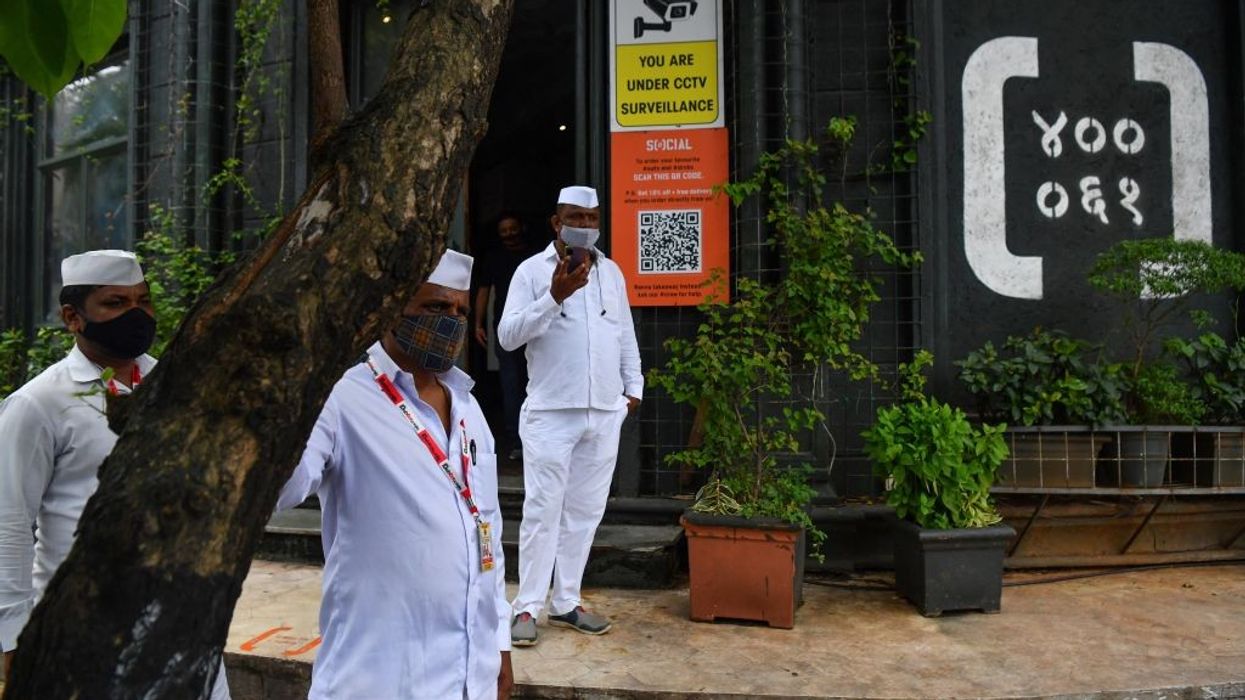MANY dabbawalas (lunchbox deliverymen) in Mumbai are now delivering restaurant staples from nachos to spaghetti carbonara to time-starved professionals as they continue working from home for a second year.
After the pandemic shut offices, the 130-year-old "dabbawala" network has tied up with a trendy restaurant chain to take on India's billion-dollar start-ups.
The scheme offers restaurateurs an alternative to the prevailing local duopoly of delivery giants Zomato and Swiggy, whose steep discounts and razor-thin margins have slashed their profits.
"We are trying to find a way out of the tyranny of the aggregators," said Riyaaz Amlani, the owner of Impresario Restaurants, which operates 57 outlets across more than a dozen Indian cities.
"Of course we want to help the dabbawalas. They are the original deliverymen of Mumbai," he said.
But a lack of literacy means many of them are reluctant to take on work that requires tech-savvy skills.
"Our members have had to work as security guards and labourers, in addition to seeking jobs as deliverymen for restaurants," said Ulhas Muke of the Nutan Mumbai Tiffin Box Suppliers Charity Trust, which represents the workforce.
He is finalising plans to set up a commercial kitchen of their own, delivering inexpensive meals across Mumbai.
He has already secured millions of dollars in donations, including a hefty $2m contribution from banking giant HSBC, with the kitchen due to open in the next few weeks.
"My grandfather was a dabbawala, and then my uncle and now I am," Muke said. "This is the work that I like doing. I want to keep delivering food to people."
Amlani plans to expand his partnership with the dabbawalas, but analysts say that alone may not be enough to help the famed deliverymen survive the pandemic.
"It is paramount for them to be flexible at this point," said Sreedevi R, an assistant professor at Mumbai's SP Jain Institute of Management and Research.
"The dabbawalas could become delivery agents for last-mile delivery not just for restaurants but also for any e-commerce business," she said.
There are around 5,000 dabbawalas who have gained global recognition for delivering home-cooked food with clockwork precision.
An intricate system of alphanumeric codes helps the largely semi-literate or illiterate workforce collect, sort and distribute 200,000 meals across Mumbai each day via bicycles, hand carts and a sprawling local train network.
Their work has been studied as a "model of service excellence" at Harvard Business School, and inspired personal visits from Richard Branson, Prince Charles and executives from global delivery giants FedEx and Amazon, among others.





